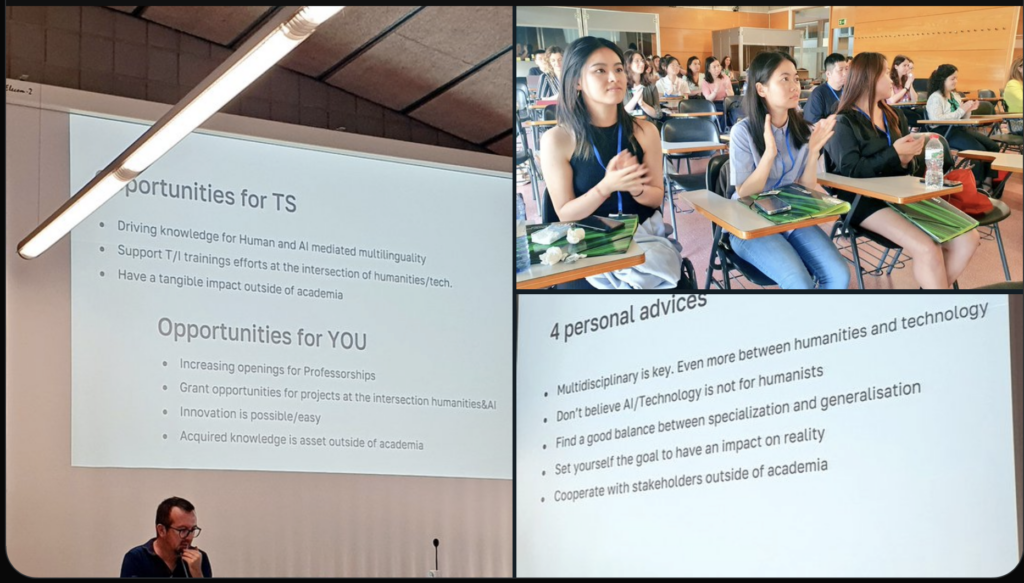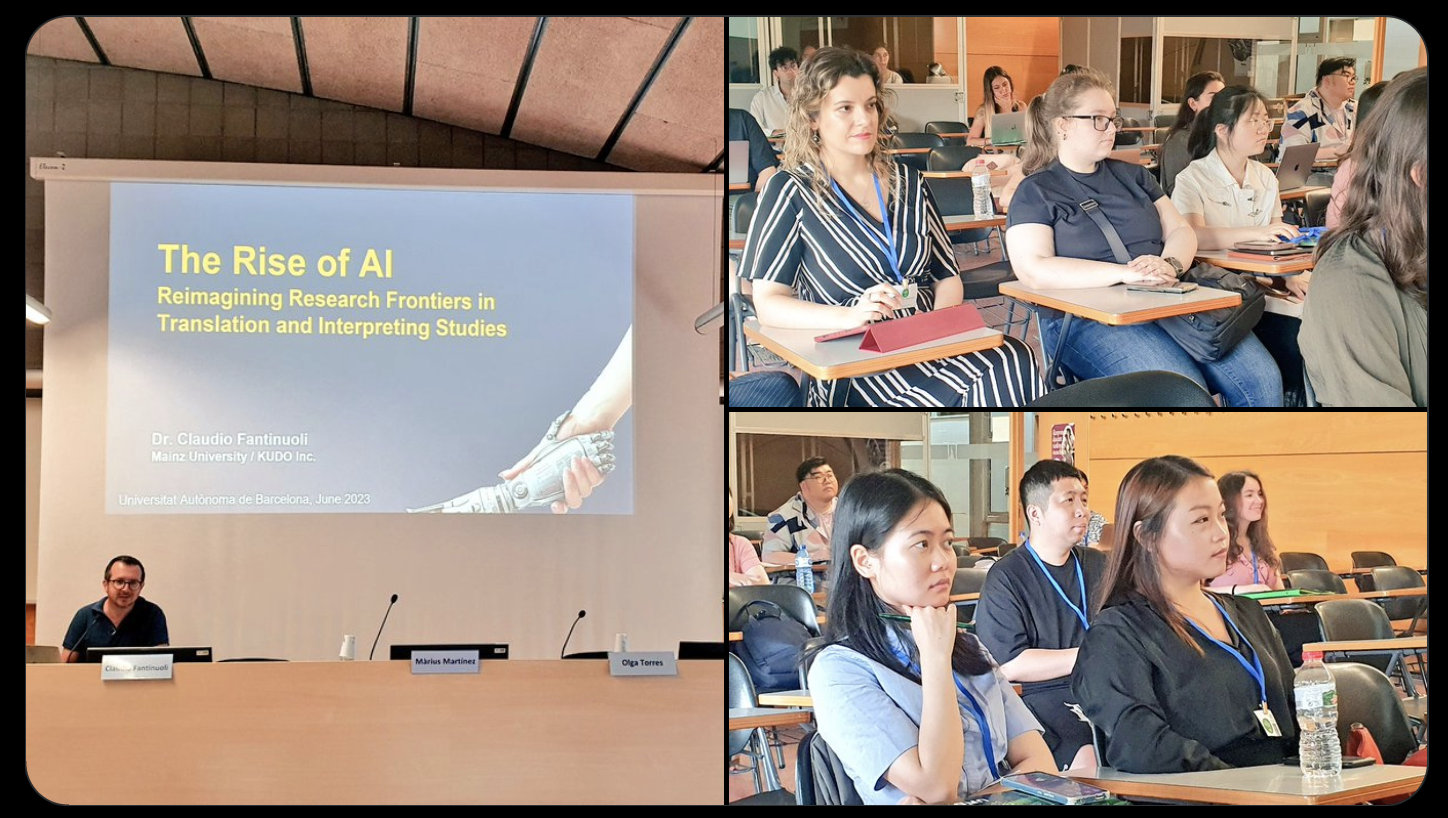Recently I had the incredible honor of delivering a keynote speech titled “The Rise of AI: Reimagining Research Frontiers in Translation and Interpreting Studies” at the XIII International Symposium for Young Researchers held at the Universitat Autònoma de Barcelona. Second time at this university in only 2 weeks. This time however in person.
These are the main points from my presentation:
🔹 The ‘technological turn’ in translation and interpreting has reached its culmination, with AI taking center stage as the driving force behind the transformation of multilingual communication.
🔹 While machines possess surprising abilities to comprehend and manipulate language, human experts will continue to play an indispensable role. However, computers will increasingly serve not only as tools to augment professionals but also as tools to support users through automation.
🔹 The emergence of AI has opened up new and unexplored research avenues for young academics. I have identified several promising areas of study, including:
👉 Education: Exploring how to teach professionals to understand, critically discuss, and adopt AI technologies (not only machine translation!). Knowledge is key. And scarcity of knowledge around AI and its applications is tangible. The numbers of areas to explore here are literally infinite.
👉 Industry: Analyzing the impact of AI adoption on practices, workflows, and outcomes within complex systems. Multidisciplinary at its core, but finally at the intersection with different disciplines such as economics and business.
👉 Translation: Formalizing the unique features of human-mediated multilingual communication. This is a rather interesting area at the intersection of Translation Studies and Philosophy. Applying a formal-mathematical approach to human and AI translation/interpreting could produce a fascinating and novel look at how we see humans as agents of multilingual communication.
👉 Social: Investigating the practical and ethical implications of empowering individuals with autonomous access to multilingual communication. Automation aims at creating the same very bridge in mutual understanding among languages and cultures that professionals pursue. How can this become a force for good, and what are the positive and negative implications of direct access to information.
👉 Linguistic: Examining the effects of AI as a massive producer of language products on the nature of language itself. Language evolution has been historically determined by many factors. AI (written and spoken translation as well as text generation) adds a new element with a potential impact on language.
👉 However: probably the most interesting venues of research are the one I can not think of and they will come up with, following their interests, intuitions and fresh view of reality.
🔹 The opportunities for young researchers in these areas are immense. These topics are not only relevant for the discipline but also have the potential for tangible impact on the discipline itself and on the practice of translation and interpretation, they will allow researchers to acquire expertise that can be applied both in academia and, equal importantly and rare at the moment, in the industry.
🔹 However, we must also acknowledge the challenges ahead. The most prominent one lies in overcoming the traditional divide between humanities and technology. Nevertheless, I firmly believe that the young generation is well-equipped to tackle this obstacle with ease.
Lastly, I want to express my sincere gratitude for witnessing the vibrant energy of approximately 30 PhD students gathered together. It was truly a pleasure to be a part of such an inspiring event.

Pics by Event organizer.
